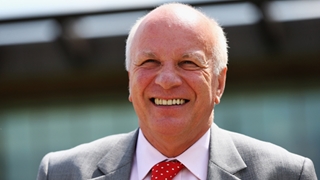
The introduction of B teams, overhauling the work permit system and boosting the number of homegrown players in squads are among the proposals set out by FA Chairman Greg Dyke’s England Commission report.
In unveiling his FA Chairman’s England Commission Report, aimed at improving the Men’s Senior England team, Dyke set a target of increasing the current number of 66 English players playing regularly in the Premier League to 90 by 2022.
In order to achieve this, the Commission focused on the entire pathway for players to ensure they can develop to the best of their potential.
Along with introducing B teams and work permit reform, the Commission recommends creating new strategic loan partnering between clubs.
Important concerns for The FA around coaching and grassroots facilities are being addressed and will be reported on in more detail over the coming months, with the acknowledgement that much more work needs to be done.
Dyke said: "This decline is a problem in countries right across Europe but is a significantly bigger problem in England than anywhere else and if the trend continues we fear for the future of the English team. If this cannot be reversed, a future England manager will have fewer and fewer top level English players from which to choose.
"We want to continue to have the best foreign players playing in England and to strengthen the quality and excitement of the Premier League and the rest of English club football.
"But we also want to develop ways of giving more English boys the best chance of achieving their potential by enabling them to play football at the very highest level.
"We believe that this is not only in the best interests of the national team and the young English players themselves, but also in the interests of the professional football clubs who are spending millions of pounds on youth development programmes and are currently getting only a very limited return on their investment."
The FA Chairman’s Commission - made up of Roger Burden, Greg Clarke, Rio Ferdinand, Dario Gradi, Glenn Hoddle, Roy Hodgson, Ritchie Humphreys, Danny Mills and Howard Wilkinson - began work last October.
In the 80-page report, put together after contributions from more than 650 people including written submissions, interviews, meetings and panel discussions, from across English and European football, and from grassroots upwards, Dyke identified four problem areas in the game.
- Area 1 - Inadequate and insufficient competitive playing opportunities for 18-21 year-old elite players at top clubs
- Area 2 - Regulation of the player market in England is not effective in preserving the desired balance of British, EU and non-EU players in clubs
- Area 3 - Coaching and coach development, especially at grassroots level, have not yet reached a satisfactory level and impact
- Area 4 - England lags behind in the quantity and quality of affordable grassroots facilities, particularly in the provision of all-weather pitches
Dyke added: "We recognise that making changes in football is often a slow and difficult process but we urge those in the football world to consider our proposals constructively and with open minds.
"We urge them to balance the specific, narrowly-defined concerns of their particular club or league with what will be of the most benefit to the game overall, to the development of young English players and to the success of the England team."








